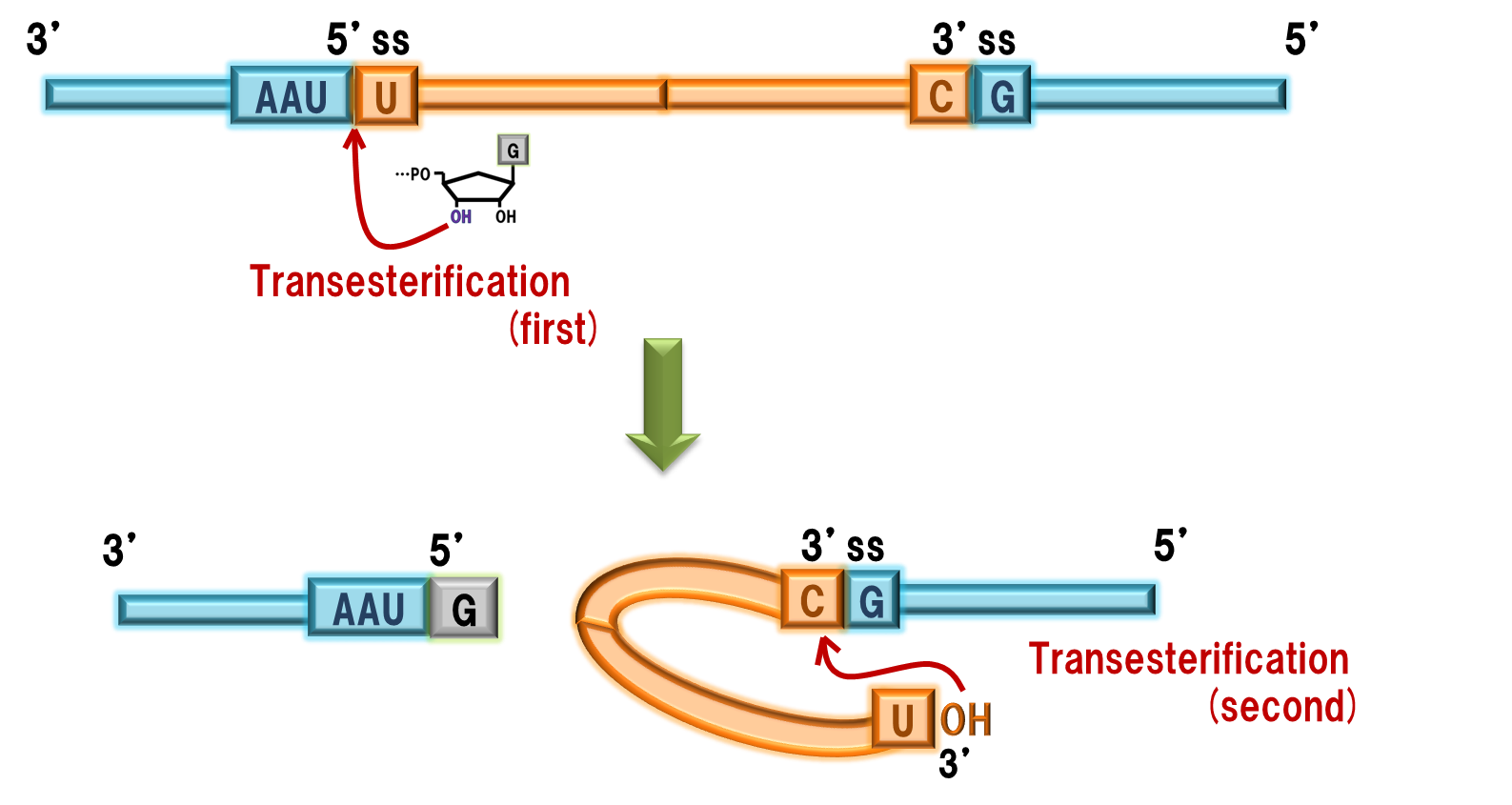Part:BBa_K1332004
The 5� side of the intron(+exon fragment) from td gene of T4 phage
This part is a part of the mRNA circularization device (3’ side). The combination of this part and a terminator is the mRNA circularization device (3’ side) (BBa_K1332010). But there are a stop codon in this part, so a circular mRNA made by BBa_K1332010 (mRNA circularization device (3’ side); It consist of this part and double terminator.) doesn’t cause continuous translation.
The mechanism of mRNA circularization
This part is a part of group I intron. The group I intron is capable of self-splicing. The mRNA circularization device is based on the mechanism. We explain the circularization mechanism of group I intron with td gene of T4 phage as an example. td gene consists of an upstream exon, an upstream intron, an ORF, a downstream intron and a downstream exon.
As the first step, a nucleophilic attack by a guanosine separates the upstream exon from the upstream intron and then the guanosine bond to the 5’ end of the upstream intron.
As the second step, the downstream exon is separated from the downstream intron by a nucleophilic attack. The nucleophilic attack is taken place by a hydroxy group at the 3’ end of the upstream exon.(Figure 1)

Figure 1. Self-splicing in T4 phage: the first and second step (Blue: intron, Orange: exon)
As the third step, the upstream intron bond to the downstream intron by an attack on an adenine of the upstream intron. The attack is taken place by a hydroxyl group of an end of the downstream intron. And then a circular intron is formed.(Figure 2)

Figure 2. Self-splicing in T4 phage: the third step (Blue: intron, Orange: exon)
This part is involved in the second step of the mechanism of the group I intron circularization.
Two exons are connected with each other in the circularization system; furthermore an exon can theoretically be circularized by the system. (Figure 3)


Figure 3. An idea of mRNA circularization (Blue: intron, Orange: exon)
The method that put the theory into practice is the PIE method. The PIE method stands for the Permuted Intron-Exon method. A circular mRNA is made by the method.
The protocol of PIE method
1. Pick out the intron and splice site in the exon.
2. Sandwich the sequence that you want to circularize between preceding fragments.

Figure 4. PIE method
Sequence and Features
- 10COMPATIBLE WITH RFC[10]
- 12COMPATIBLE WITH RFC[12]
- 21COMPATIBLE WITH RFC[21]
- 23COMPATIBLE WITH RFC[23]
- 25COMPATIBLE WITH RFC[25]
- 1000COMPATIBLE WITH RFC[1000]
| None |
